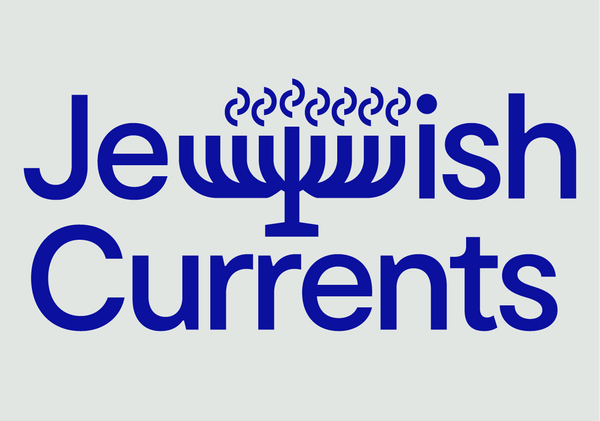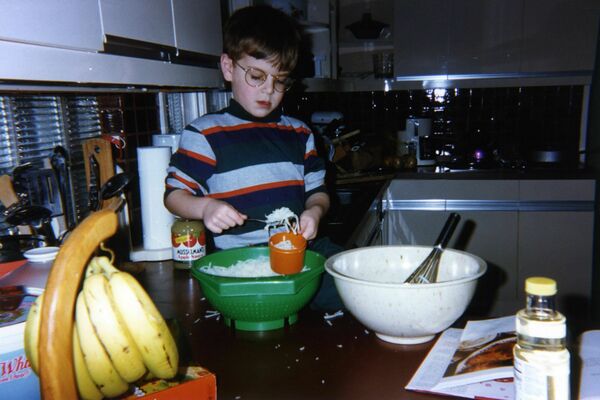Newsletter
Dec
19
2022

Chag Urim Sameach! This year we are celebrating Hanukkah by introducing our readers to a new member of our incredible staff each night as we reflect on the work we’re most proud of from 2022.
We believe something amazing is happening here at Jewish Currents, but we can’t make miracles without your help. We don’t depend on venture capital to fund our work and we don’t accept paid advertising. Rather, it’s your engagement and support that makes the labor of our writers, editors, artists, and fact-checkers possible, and allows us to continue exploring the questions that are most vital to today’s Jewish communities. We’re excited to shine a light on the people behind Jewish Currents, to share with you exactly who and what you are supporting when you read, listen, donate, and subscribe to our magazine.

Hi! My name is Nathan Goldman, and I’m the managing editor of Jewish Currents.
Two of my favorite pieces to work on this year were book reviews by my colleagues. Many of the reviews we publish at Jewish Currents turn out to be pans. This is partly because we strive to publish criticism that makes a robust, novel argument about the text or texts under discussion, and critique often lends itself well to this form, especially when the review dissents from widespread acclaim; love for a book can be a more difficult place from which to produce an intervention that goes beyond praise. But we also value rigorous positive criticism, like executive editor Nora Caplan-Bricker’s piece on Sheila Heti’s novel Pure Colour and culture editor Claire Schwartz’s piece on poet Solmaz Sharif’s Customs.
Both of these brilliant reviews, on two of my favorite books of the year, exemplify the possibilities of the form, using the writer’s affection for the work as a gateway to the intricacies of its aesthetic project. Nora situates Heti’s book in the context of the author’s career-long inquiry into the “sanctified void” of futurelessness, using the philosopher Walter Benjamin’s understanding of fairy tales as a means of cultural transmission to show how Heti’s “strange fables of finitude” refashion the form “into pearls of wisdom for the end of the world.” Claire carries us into the anti-imperial imaginary of Sharif’s poems, asking what it means to navigate literary success when fame itself “can become an imperial enclosure.” In Sharif’s exilic poetics, which challenge the grammar of the state, Claire finds a generative form of wrestling.
It was a particular pleasure to edit these pieces because the process unfolded as part of months-long conversations—about the books themselves and the larger questions they raise about language, politics, and literary form. I come to criticism for the opportunity to think with others in ways that expand and challenge my own interpretive frame, and the joy of editing reviews is an extension of that same pleasure. In these cases, the editing emerged out of and fed back into discussion with treasured friends and colleagues, making it a highlight of the year.
To continue publishing bold, imaginative criticism like the pieces Nathan mentioned above, we rely on our community of supporters and subscribers. Please consider sustaining our work by making a donation or subscribing to Jewish Currents today. Our subscriptions also make great gifts!
As a small token of our appreciation for our community of readers and contributors, we are also offering newsletter subscribers 36% off of anything in our online store if you use the code GELT2022. Shop Jewish Currents gifts—like our tote bags, back issues, and special editions—for your friends and family (or yourself!).
Thank you for your continued support, and we wish you a relaxing and peaceful holiday season, no matter what you celebrate.